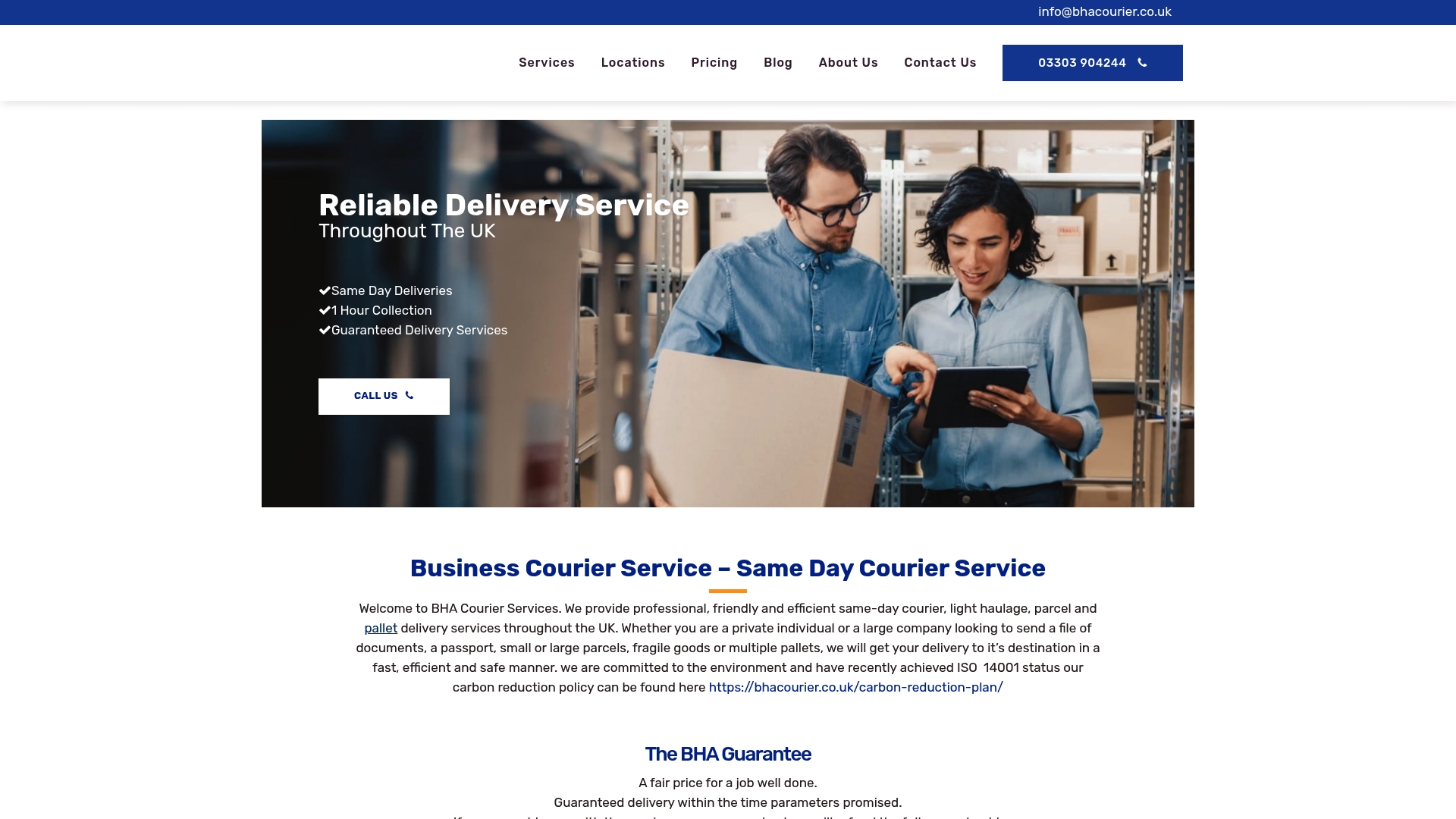
28 Oct Improving Customer Retention: Practical Steps for UK Businesses 2025
UK businesses are finding that loyal customers can mean the difference between survival and success. Reports show that a 5 percent boost in customer retention can raise profits by up to 95 percent. Most would think landing new customers is the quickest way to grow, but actually, sticking with the ones you already have brings the biggest rewards.
Table of Contents
- Why Improving Customer Retention Matters
- Key Strategies To Boost Customer Loyalty
- Technology Tools For Retaining Customers
- Tailoring Retention Techniques For UK Markets
Quick Summary
| Takeaway | Explanation |
|---|---|
| Focus on Customer Retention | Retaining customers is more cost-effective than acquiring new ones, with a significant financial impact. |
| Implement Personalisation Strategies | Tailor customer experiences to individual preferences using data-driven insights to enhance loyalty. |
| Invest in Strong Customer Support | Exceptional support creates trust and transforms issues into loyalty-building opportunities. |
| Leverage Technology for Retention | Utilize CRM systems, AI, and integrated communication to enhance engagement and streamline interactions. |
| Understand UK Cultural Nuances | Develop retention strategies that align with British consumers’ values of authenticity and quality service. |
Why Improving Customer Retention Matters
Customer retention represents a critical strategic imperative for UK businesses seeking sustainable growth and competitive advantage. In an increasingly complex marketplace, the ability to keep existing customers engaged and satisfied can significantly impact a company’s bottom line and long-term success.
The Economic Impact of Customer Retention
Retaining customers is fundamentally more cost-effective than acquiring new ones. Forrester Research estimates that acquiring a new customer can cost up to five times more than retaining an existing one. For UK businesses, this translates into a substantial financial opportunity. A modest 5% increase in customer retention can potentially boost profits by 25% to 95%, demonstrating the profound economic significance of improving customer loyalty.
The mathematics of customer retention are compelling. Repeat customers typically spend more and require less marketing investment. They understand your products, trust your brand, and are more likely to make additional purchases. This reduced friction in the sales process means lower transaction costs and higher overall profitability.
Here is a table summarising the key economic impacts of improving customer retention, based on figures and statements cited in this section:
| Metric or Statement | Value / Description |
|---|---|
| Cost to acquire new customer vs retain | Up to 5x higher |
| Profit boost from 5% increase in retention | 25% to 95% |
| Repeat customer behaviour | Spend more, require less marketing, greater trust |
| Impact on marketing costs | Lowered due to reduced friction and more efficient sales |
Strategic Value Beyond Financial Metrics
Beyond pure financial considerations, customer retention carries significant strategic value. Harvard Business Review highlights that businesses with strong customer retention strategies develop deeper market insights, create more resilient brand ecosystems, and build powerful competitive differentiators.
Customers who remain loyal become brand advocates, providing invaluable word-of-mouth marketing. In the digital age, where online reviews and recommendations carry immense weight, these advocates can significantly influence potential new customers. Their testimonials and positive experiences serve as powerful marketing tools that money cannot easily purchase.
Building Long-Term Business Sustainability
Improving customer retention is not just a tactical manoeuvre but a fundamental approach to building sustainable business models. It requires understanding customer needs, consistently delivering exceptional value, and creating meaningful engagement strategies that go beyond transactional interactions.
For UK businesses navigating complex economic landscapes, customer retention represents a strategic cornerstone. It demands continuous investment in understanding customer expectations, personalising experiences, and demonstrating genuine commitment to customer success. Those who master this approach will not merely survive but thrive in increasingly competitive markets.
The message is clear: improving customer retention is not optional. It is an essential strategy for businesses seeking to build resilient, profitable, and customer-centric operations in the modern business environment.
Key Strategies to Boost Customer Loyalty
Building customer loyalty requires a multifaceted approach that goes beyond traditional marketing techniques. UK businesses must develop sophisticated strategies that create genuine connections and deliver exceptional value to their customers.
Personalisation and Customer Experience
Salesforce Research reveals that 84% of customers consider the experience a company provides to be as important as its products and services. Personalisation has emerged as a critical strategy for boosting customer loyalty. This means moving beyond generic interactions to create tailored experiences that make customers feel uniquely understood and valued.
Personalisation strategies include leveraging data analytics to understand individual customer preferences, purchasing histories, and behaviours. By implementing sophisticated customer relationship management (CRM) systems, businesses can segment their customer base and develop targeted communication and service approaches. For instance, sending personalised product recommendations, birthday offers, or customised service updates can significantly enhance customer engagement.
Implementing Robust Customer Support Systems
Harvard Business Review emphasises that exceptional customer support is a cornerstone of customer loyalty. Modern customers expect swift, efficient, and empathetic problem resolution. This requires businesses to invest in comprehensive support infrastructure that goes beyond traditional customer service models.
Effective customer support involves multiple channels of communication, including digital platforms, telephone support, email, and live chat. Training support teams to not just resolve issues but to create positive emotional experiences is crucial. The goal is to transform potential negative interactions into opportunities for building trust and demonstrating commitment to customer satisfaction.

Technology-Driven Loyalty Programmes
Advanced loyalty programmes have evolved from simple points-based systems to sophisticated engagement platforms. Gartner Research suggests that businesses should view loyalty programmes as strategic tools for building long-term customer relationships rather than mere transactional mechanisms.
Modern loyalty programmes incorporate elements such as tiered rewards, personalised benefits, and seamless digital experiences. For UK businesses, this might mean developing mobile apps that integrate loyalty points, exclusive offers, and real-time personalised communication. The key is creating a loyalty ecosystem that provides tangible value and makes customers feel genuinely appreciated.
Technology plays a pivotal role in these programmes. Machine learning algorithms can help predict customer preferences, while blockchain technologies offer new ways of managing and transferring loyalty points. By embracing innovative technological solutions, businesses can create more engaging and flexible loyalty experiences.
Successful customer loyalty strategies require continuous adaptation. UK businesses must remain agile, consistently gathering customer feedback, analysing performance metrics, and refining their approaches. The most successful organisations view customer loyalty not as a static goal but as a dynamic, ongoing commitment to understanding and exceeding customer expectations.
The following table compares three key strategies discussed in this section for boosting customer loyalty:
| Strategy | Key Features | Example Benefits |
|---|---|---|
| Personalisation | Tailored experiences via data analytics, CRM, segmentation | Higher customer engagement, sense of being valued |
| Robust Customer Support | Multi-channel, empathetic, efficient problem resolution | Builds trust, turns issues into loyalty opportunities |
| Technology-Driven Loyalty Programmes | Tiered rewards, personalised benefits, digital experiences | Tangible value, increased retention, deeper engagement |
Technology Tools for Retaining Customers
In the rapidly evolving digital landscape, technology has become a cornerstone of effective customer retention strategies. UK businesses are increasingly leveraging sophisticated technological tools to create more personalised, responsive, and engaging customer experiences.
Customer Relationship Management (CRM) Systems
Gartner Research indicates that advanced CRM systems are transforming how businesses understand and interact with their customers. These platforms go beyond simple contact management, offering comprehensive insights into customer behaviours, preferences, and interaction histories.
Modern CRM tools enable businesses to track customer journeys across multiple touchpoints, creating a holistic view of each customer’s relationship with the company. By integrating data from various sources such as social media, website interactions, purchase histories, and customer support communications, businesses can develop more nuanced and targeted retention strategies.
Peer-reviewed research demonstrates that organisations using advanced CRM technologies can improve customer retention rates by up to 27% through more personalised and proactive engagement approaches.
AI and Predictive Analytics
Artificial Intelligence (AI) and predictive analytics have emerged as powerful tools for anticipating customer needs and preventing potential churn. These technologies analyse vast amounts of data to identify patterns, predict customer behaviours, and generate actionable insights.
Predictive models can help businesses:
- Identify customers at risk of leaving
- Recommend personalised products or services
- Develop targeted retention interventions
- Understand potential friction points in the customer experience
By leveraging machine learning algorithms, businesses can create more dynamic and responsive customer retention strategies that adapt in real-time to changing customer preferences and behaviours.
Integrated Communication Platforms
Multichannel communication technologies have revolutionised how businesses interact with their customers. These platforms enable seamless communication across various channels, including email, messaging apps, social media, and traditional customer support systems.
Salesforce Research highlights that customers now expect consistent and personalised experiences across all interaction points. Integrated communication platforms allow businesses to:
- Maintain consistent messaging
- Provide rapid response times
- Offer personalised support
- Track and analyse customer interactions
The key to successful technology-driven customer retention is not just implementing these tools but integrating them into a cohesive strategy that prioritises customer experience. UK businesses must view technology not as a replacement for human interaction but as a powerful enabler of more meaningful, efficient, and personalised customer relationships.
As technology continues to evolve, businesses that remain adaptable and willing to invest in advanced customer retention tools will be best positioned to build lasting, profitable customer relationships in an increasingly competitive marketplace.
Tailoring Retention Techniques for UK Markets
Successful customer retention strategies in the UK require a nuanced approach that recognises the unique characteristics of British consumers and the specific dynamics of UK markets. Businesses must move beyond generic approaches and develop targeted techniques that resonate with local consumer preferences and behaviours.
Customer Segmentation and Predictive Modelling
Cutting-edge research exploring customer segmentation in UK retail markets demonstrates the critical importance of sophisticated clustering techniques. Using advanced Gaussian Mixture Model (GMM) algorithms, businesses can achieve a remarkable 0.80 Silhouette Score in customer segmentation, enabling more precise and targeted retention strategies.
Strategic customer segmentation allows businesses to develop highly personalised retention approaches. By understanding distinct customer groups, companies can create tailored communication strategies, service offerings, and loyalty programmes that speak directly to specific customer segments’ needs and preferences.
Research from advanced predictive modelling frameworks highlights the importance of individual customer lifetime value (CLV) in developing targeted retention techniques. This approach enables businesses to prioritise retention efforts towards customers with the highest potential long-term value, optimising resource allocation and marketing investments.
Industry-Specific Retention Approaches
Different UK industries require unique retention strategies. Banking sector research reveals that targeted customer lifetime value modelling can improve prediction accuracy by up to 43%, demonstrating the potential for sophisticated, data-driven retention techniques.
Key considerations for industry-specific retention include:
- Understanding sector-specific customer expectations
- Developing targeted communication strategies
- Creating personalised service experiences
- Implementing flexible loyalty programmes
For instance, financial services might focus on trust and reliability, while technology companies might emphasise innovation and continuous improvement. Retail sectors could prioritise personalised recommendations and seamless omnichannel experiences.
Cultural Nuances in UK Customer Retention
Successful retention strategies must acknowledge the distinctive cultural characteristics of UK consumers. British customers typically value:
- Authenticity and transparency
- High-quality customer service
- Personalised but not intrusive communication
- Strong ethical and sustainability credentials
Businesses must develop retention techniques that demonstrate genuine understanding and respect for these cultural preferences. This means moving beyond transactional relationships to build meaningful, trust-based connections with customers.
Implementing effective retention techniques requires continuous learning and adaptation. UK businesses must remain agile, consistently gathering customer feedback, analysing performance metrics, and refining their approaches. The most successful organisations view customer retention as a dynamic, ongoing commitment to understanding and exceeding customer expectations.
By combining advanced technological tools, data-driven insights, and a deep understanding of UK market dynamics, businesses can develop retention strategies that not only preserve their customer base but also drive sustainable growth and competitive advantage.

Frequently Asked Questions
What are the benefits of improving customer retention for UK businesses?
Improving customer retention can significantly boost profits, with studies indicating that a 5% increase in retention might lead to a profit increase of 25% to 95%. Additionally, retaining customers is generally more cost-effective than acquiring new ones.
How can personalisation enhance customer loyalty?
Personalisation enhances customer loyalty by creating tailored experiences based on individual preferences and behaviours. This can be achieved through data-driven insights, allowing businesses to send targeted offers and recommendations that make customers feel valued.
What role does technology play in customer retention strategies?
Technology plays a crucial role in customer retention by enabling sophisticated CRM systems, predictive analytics, and integrated communication platforms. These tools help businesses understand customer needs, streamline interactions, and deliver personalised experiences effectively.
How can UK businesses tailor retention techniques to their specific market?
UK businesses can tailor retention techniques by understanding cultural nuances, segmenting their customers for targeted strategies, and developing industry-specific approaches. This ensures that retention efforts resonate with local consumer preferences and expectations.
Enhance Your Customer Retention with Delivery You Can Truly Rely On
Are unreliable deliveries holding back your efforts to build customer loyalty and strengthen retention? The article “Improving Customer Retention: Practical Steps for UK Businesses 2025” highlights how dependable service and positive customer experiences are essential in keeping clients for the long term. If your customers have ever faced late, damaged, or missing parcels, you know how quickly trust can be lost. With rising expectations for speed, security, and personalisation—especially in time-sensitive situations like document or passport deliveries—your courier partner must support your promise of excellence.

Let BHA Courier help you remove uncertainty from your delivery process. We specialise in time-critical and secure courier solutions across the UK, offering same-day and next-day options tailored to boost your customers’ satisfaction. Our online booking system, parcel tracking, and dedicated support mean you stay in control at every step. Do not let unreliable deliveries cost you loyal clients. Discover today how BHA Courier can help your business deliver on every promise—book your next urgent delivery now and see the difference genuine service can make.
Recommended
- How to Prepare Tender Documents: A 2025 Guide for UK Businesses – BHA Couriers
- Same Day Bristol Courier – Guaranteed – BHA Couriers
- Same Day Courier Service Preston – BHA Couriers
- Same Day Courier Plymouth – BHA Couriers
- Klantgericht werken in 2025: Succes voor mkb en lokale bedrijven – Twizz
- Customer Journey Mapping for CRO Marketers in 2025


